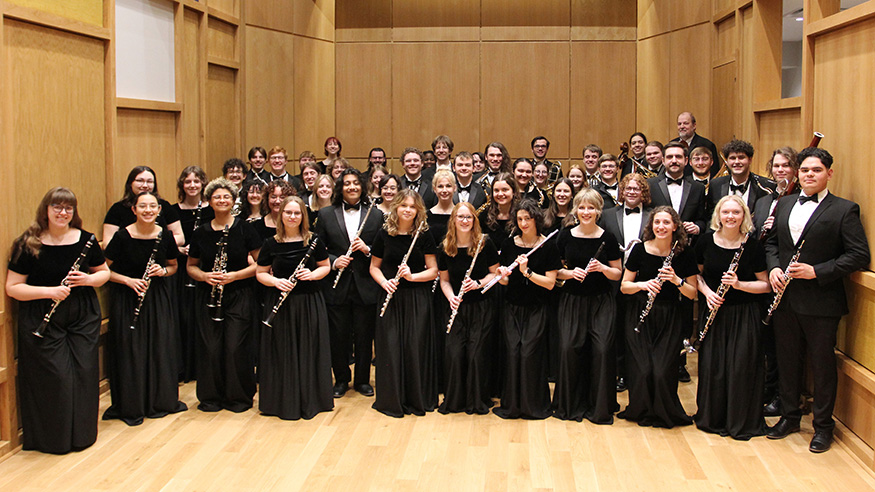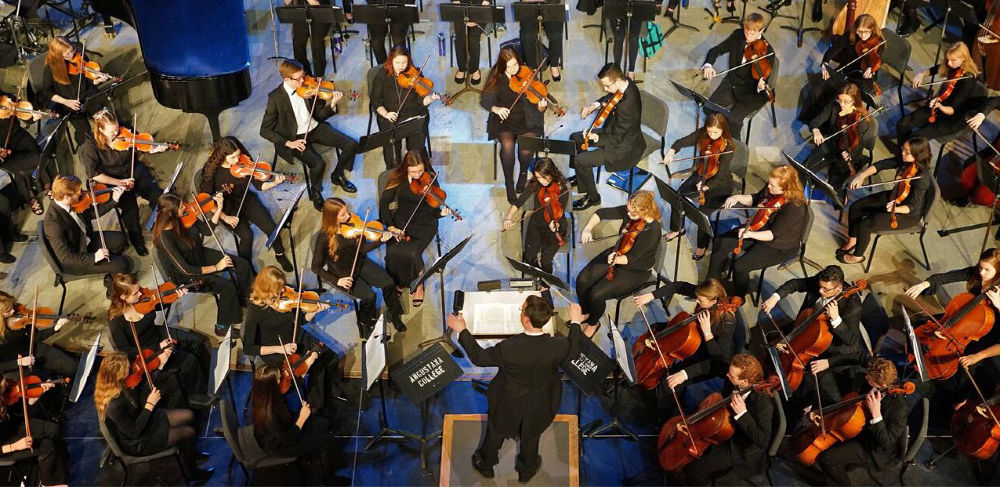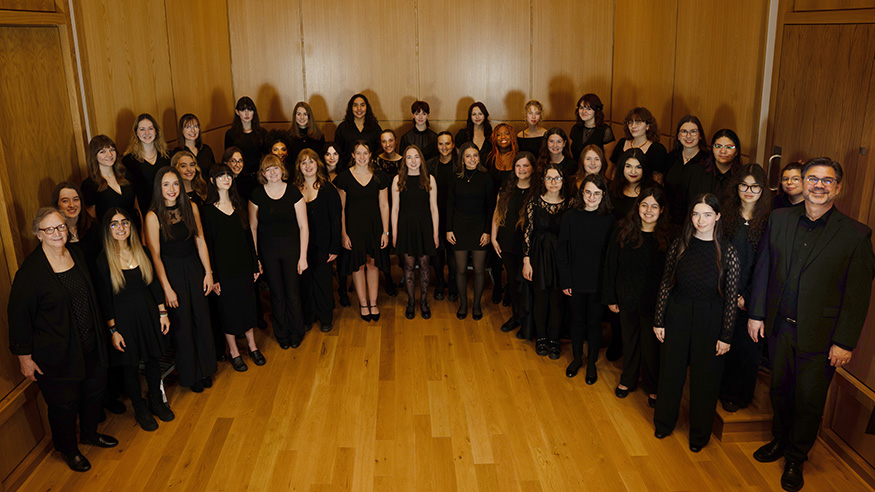
Augustana Symphonic Band to tour the Midwest in March
The Augustana Symphonic Band, directed by Dr. James Lambrecht, will bring performances to communities across Illinois and Wisconsin March 20-26. All concerts are open to the public.

The Augustana Symphony Orchestra is a full-size symphonic orchestra of 70-80 members that has an active and diverse performing schedule throughout the year.
The orchestra provides a positive musical and social experience, while producing music at the highest level possible. Rehearsals are upbeat and fun, and the repertoire is both varied and challenging.
The orchestra typically performs two major programs each semester. Additional activities include hosting a student concert competition, reading student orchestral compositions and working with student conductors.
In addition, students may participate in the Augustana Chamber Orchestra, which will collaborate on staged productions with the OperX Ensemble, and learns additional repertoire.
Contact any of the following people for more information about the orchestra and string programs at Augustana:

The Augustana Symphonic Band, directed by Dr. James Lambrecht, will bring performances to communities across Illinois and Wisconsin March 20-26. All concerts are open to the public.
Augustana College will host its annual Shockingly Modern Saxophone Festival on Feb. 21. The event, featuring guest artists John Sampen and Mark Bunce, will be held at Bergendoff Hall, located at 3701 7th Ave. All events are free and open to the public.

Augustana's Jenny Lind Vocal Ensemble, under the direction of Dr. Michael Zemek, will embark on a performance tour March 20-23, 2026. The tour will kick off in Chicago, Ill., and then they will continue on to perform in Seattle, Wash., and Portland, Ore.
Guest artist Christopher Scott will perform a voice recital.
The Augustana Jazz Ensemble and Jazz Lab Band will perform, directed by Dr. Joel Linscheid.
The Augustana Symphony Orchestras presents an afternoon of orchestral works spanning the Romantic era to the twentieth century.